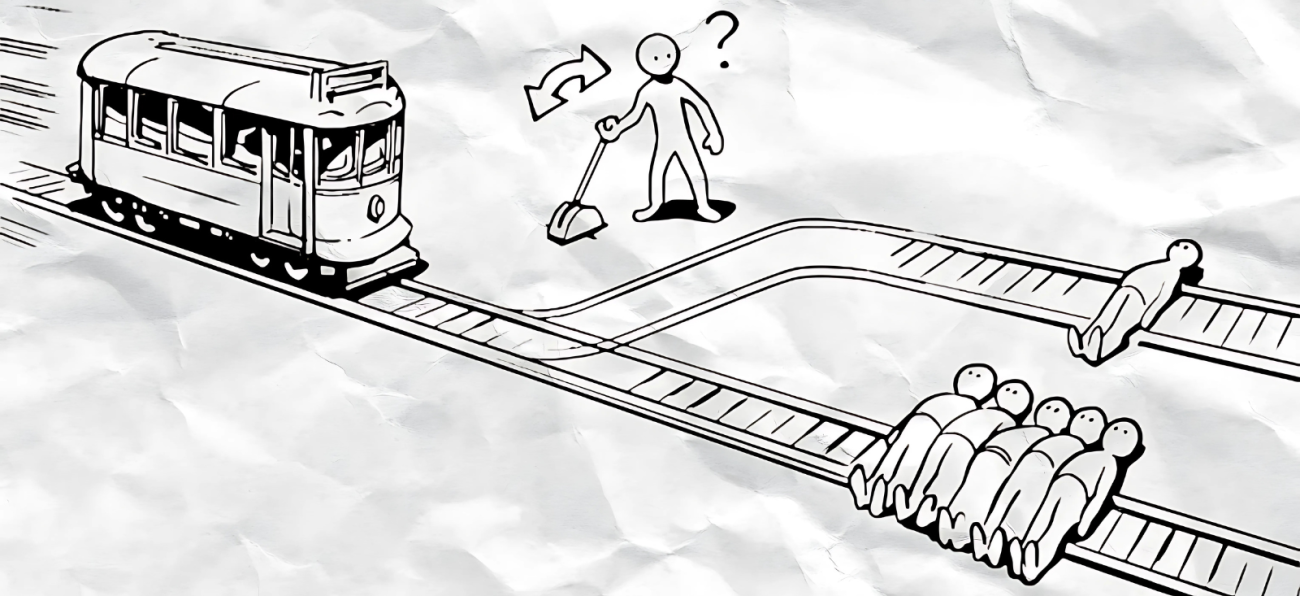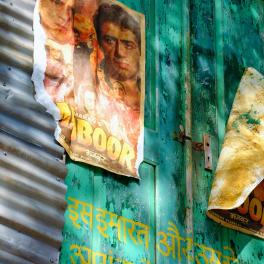
Whenever the trolley problem comes up in a conversation, I can’t help but roll my eyes. It is a perfectly fine thought experiment, but I view it as nothing more than beating a dead horse. This thought experiment is super popular because it puts you right into the situation, making it way more engaging by letting you have full control over the decision. While this is definitely true and proves to be the experiment’s biggest strength, it is nothing more than an illusion.
Ironically, what has elevated the experiment in terms of popularity is also what undermines its substance, rendering it almost an empty debate. For anyone who doesn’t know about this wildly popular dilemma, it pits us beside a railway, with a lever that can change the course of an oncoming train whose brakes have failed. On the intended course of the train, there are 5 people bound to the tracks. While on the diverted track, there is only one person bound. All caveats and loopholes are eliminated, and we only have the choice of pulling the lever, or not. Simply put, this is the dilemma: Do we pull the lever and cause the train to run over a person whose blood will be on our hands, or do we do nothing and let 4 extra lives get lost?
The utilitarian viewpoint, which aims to minimize suffering and maximize pleasure, suggests diverting the train because, rationally, it is the correct option. If people have to be killed, isn’t it better to kill one rather than five? That's just simple arithmetic.
On the other side of the coin, there is an argument to be made that by pulling the lever, we are actively killing the individuals rather than letting them die. And because killing is worse than letting people die, pulling the lever is immoral.
In my opinion, the utilitarian argument seems logical, and the other argument seems to be built more upon emotion rather than logic because it is our gut reaction to not pull the lever and intentionally cause death.
The truth is, we can sit here and discuss this hypothetical situation all we like, but if we are suddenly thrust into a similar scenario, we will most likely freeze, and the moment of decision will breeze past while we remain shell-shocked. Therefore, I believe it is most likely that we would do nothing if we were put into the trolley problem. If we were to do something, it would probably be very different from the choice we would make while sitting in the comfort of our homes. This is because when we’re in the situation, the people bound to the tracks don't remain mere figures of statistics; no, they become beings of flesh and blood, with hopes and dreams, whose lives lie in the palm of our hands. Being the judge, jury, and executioner of real people might shatter one’s conscience and might throw all preconceived rationale right out the window, with emotions taking the reins instead. Hence, our reaction will most likely be an impulsive one, devoid of much rationale and fueled by our gut. Therefore, we can sit here and talk for hours about this fictional scenario, but if we were really put into this scenario, all logic would leave us, and we would be at the mercy of our split-second decisions.
This is all true in my opinion; the conclusion we arrive at while discussing the trolley problem might not be the decision we make if we are suddenly thrust into the scenario. Although this does limit how useful the thought experiment is overall, it doesn’t make it totally irrelevant.
The trolley problem effectively sets aside all variables until only one unsettling question remains: Do you sacrifice one to save five? This paradox then raises even more difficult questions about moral intuition and reasoning. Despite its flaws, the trolley problem challenges us to think deeply about the world we live in. By grappling with these troubling choices, we gain a better understanding of morality, the value of life, and the impact of our actions. So, maybe consider making the trolley problem the focus of your next conversation to expand your perspective on ethics.
Support Young Creators Like This One!
VoiceBox is a platform built to help young creators thrive. We believe that sharing thoughtful, high-quality content deserves pay even if your audience isn’t 100,000 strong.
But here's the thing: while you enjoy free content, our young contributors from all over the world are fairly compensated for their work. To keep this up, we need your help.
Will you join our community of supporters?
Your donation, no matter the size, makes a real difference. It allows us to:
- Compensate young creators for their work
- Maintain a safe, ad-free environment
- Continue providing high-quality, free content, including research reports and insights into youth issues
- Highlight youth voices and unique perspectives from cultures around the world
Your generosity fuels our mission! By supporting VoiceBox, you are directly supporting young people and showing that you value what they have to say.





